ARTICLE AD BOX
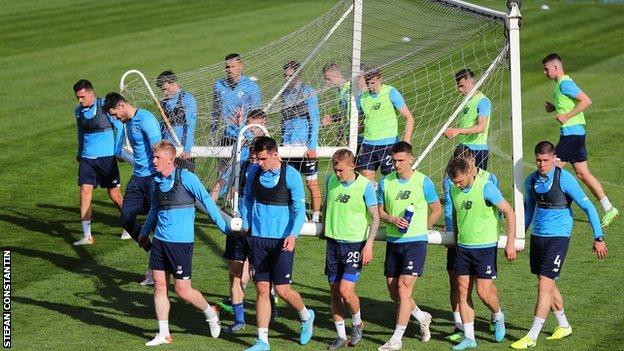 Dynamo Kyiv have relocated to Romania and are preparing to play a series of games as part of a 'peace tour'
Dynamo Kyiv have relocated to Romania and are preparing to play a series of games as part of a 'peace tour'When the first Russian bombs exploded close to Ukraine's capital Kyiv and other cities across the country in the early hours of 24 February, football did not matter anymore. But now, almost two months after the war started, the game can help heal a bleeding nation.
Dynamo Kyiv, the country's most celebrated club, came up with a plan. They asked for President Volodymyr Zelensky's approval to tour Europe and send Ukraine's message of peace through the whole continent.
Football is the channel they want to use to tell people a story about grief and hope, the gratitude they feel for the open doors they found abroad, and their fury against the horrors left behind by the invaders.
As he prepares for training in Bucharest, Romania, where Dynamo's players are camped following their journey from Ukraine, Romanian head coach Mircea Lucescu cannot afford the luxury of smiling. Not yet. At 76, he is the oldest still-active manager in top-level European football, but he is tireless.
Apart from the four foreigners in the Dynamo squad who found short-term deals elsewhere after the start of the war, Lucescu has all his players with him. Over the past 50 days, the coach and his assistants have gone from arranging buses for people fleeing war to relocating countless families and helping players' pregnant wives find doctors to take care of them.
They are training with their feet in Bucharest but their hearts are in Ukraine
The training session I watch lasts for more than an hour. Lucescu observes closely from the sidelines, with the smallest of details under scrutiny. On the grass in front of him, the players only loosen up when they circle the pitch to warm up. There's no shouting, no casual jokes as happens almost unthinkingly during most football practice.
The silence is broken by short commands from the coaching staff. This is Lucescu's normal way of communicating and reminds everyone of what it used to be like before the war started.
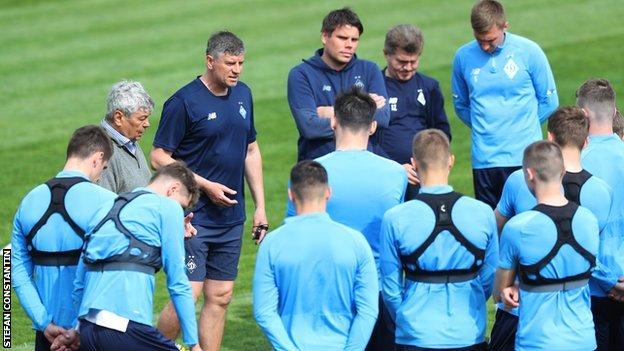 Mircea Lucescu (wearing the grey jumper) has managed in Ukraine and Russia, among many other countries
Mircea Lucescu (wearing the grey jumper) has managed in Ukraine and Russia, among many other countries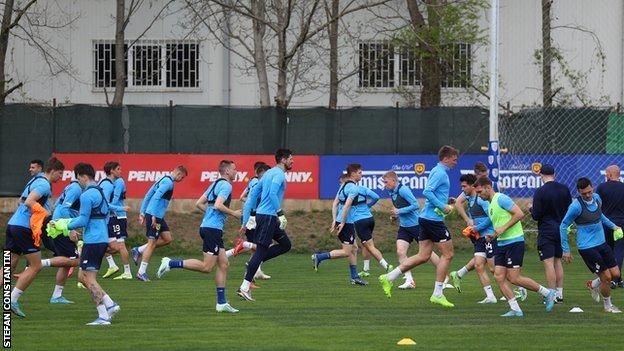 Dynamo Kyiv's Ukrainian players were not originally allowed to leave the country but received special dispensation from Ukraine's president
Dynamo Kyiv's Ukrainian players were not originally allowed to leave the country but received special dispensation from Ukraine's president"Emotional and mental stability is the most important thing for these boys right now," Lucescu tells BBC Sport as the players board the team's bus once training is done. "I try to act as I always do. These hours we spend together are really important to them. It's the only time of the day when they can focus on other things than the war at home.
"Nothing similar happened in the world since the end of World War Two. The situation is extreme. We don't know when the war is going to end or how things will evolve. It's important that we keep our hopes alive and that we make a statement with our mission in Europe."
In 2014, when he was coaching Dynamo's arch rivals Shakhtar Donetsk, Lucescu was forced to move with the whole team after the first confrontations in the Donbas region. He never expected Russia to invade.
"I left many things in Donetsk," he recalls. "The games, the files, the Champions League nights, and the derbies at the Donbas Arena. When we left the city, I never imagined I wouldn't return."
The long way to safety
When the first shelling took place in February, Lucescu thought a thunderstorm had hit. "I woke up in the middle of the night thinking there was a storm outside. I went back to sleep and found out in the morning about the bombings. I never expected it, I was shocked."
The coach refused to leave Kyiv in the first days of the war, but messages from foreign embassies urged him to do so.
After a 17-hour drive, he reached the Romanian border. Dynamo Kyiv club consultant Arcadie Zaporojanu kept in regular touch with the owner, Ihor Surkis, as well as the players and their families. Along with Lucescu, he arranged two buses to take the players' close ones outside the war zone and get them to safety in neighbouring Romania.
"There were 82 people we needed to take care of and I'm impressed by the solidarity shown in Romania," Zaporojanu says. "There were a lot of women and children and two men. Some of the families had their cats and dogs with them on the bus, there was one parrot there too. The scenes left a strong mark on me."
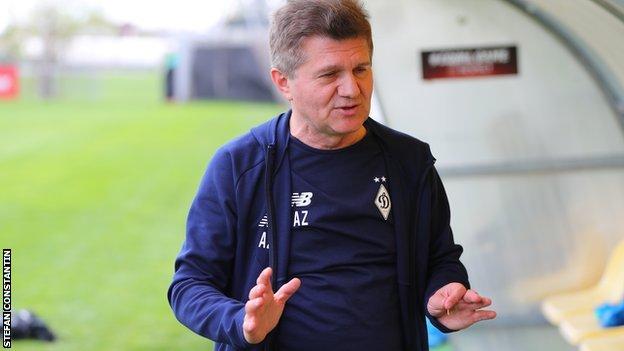 Arcadie Zaporojanu has played a key role in helping the club's players and their families since war broke out in Ukraine
Arcadie Zaporojanu has played a key role in helping the club's players and their families since war broke out in UkraineOne of the two men on board was an 87-year-old, while the other was Dynamo Kyiv's captain and Ukraine international Serhiy Sydorchuk, who could leave Ukraine even with martial law in place because he is a father of three.
"At the border with Romania we needed new buses and new drivers, as those we had were not allowed to leave the country," adds Zaporojanu. "We had to move fast and get some new vehicles from Moldova. Imagine moving all the kids and their pets with all the luggage to new cars after such a long wait and such a difficult journey.
"On arrival in Romania, we placed them all in hotels or with local families. But there were so many people, it's not easy to have them somewhere for the long term.
"Honestly, I still don't think this is real. Sometimes I want to slap myself and wake up from this horrible dream. For two months now it's back and forth for me, hundreds of kilometres between the border points to see all those in need have their situations solved."
'We looked into the players' eyes and their expressions stayed with us'
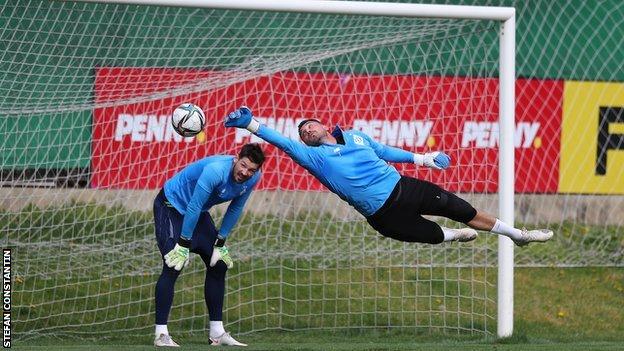 Dynamo Kyiv's Ukrainian players have a World Cup play-off against Scotland to prepare for
Dynamo Kyiv's Ukrainian players have a World Cup play-off against Scotland to prepare forPresident Zelensky himself had to sign the letter that would allow Dynamo's players to leave the country and start their tournament. Inspired by Dynamo's actions, Shakhtar applied as well and obtained the right to train and play abroad.
Aside from their charity work, the two clubs aim to get Ukrainian internationals ready for their World Cup play-off match against Scotland on 7 June. If they win at Hampden Park, Ukraine will then travel to Wales for a qualification decider due to be played just days later.
Before moving to Romania a week ago, the Dynamo players camped at the club's training base outside Kyiv, then moved to another location in a forest 100km away from Lviv. Their trip to Bucharest took almost 48 hours.
"When Mr Lucescu and I left Kyiv, we looked into the players' eyes," Zaporojanu says. "We were leaving and they were staying. Their eyes' expressions stayed with us. Now, we are together again. That's how it should be, we should all be together in peace."
Dynamo's players brought their stories with them to Bucharest, as well as the anguish for what their nation is going through. News hits them. "They have families in Mariupol or around cities that are under attack," says Zaporojanu. "Fortunately, they could all get out of the conflict zone in time. One of the club's scouts, though, Volodymyr Bezsonov, who is a huge name for Dynamo's history, is actively involved in defending Ukraine."
Dynamo's tour of Europe kicks off on Tuesday when the 16-time Ukrainian champions take on Legia in Warsaw.
"It's a symbolic game, as Poland was more than involved in this crisis," Lucescu explains. "They were there for the Ukrainian people and showed them warmth."
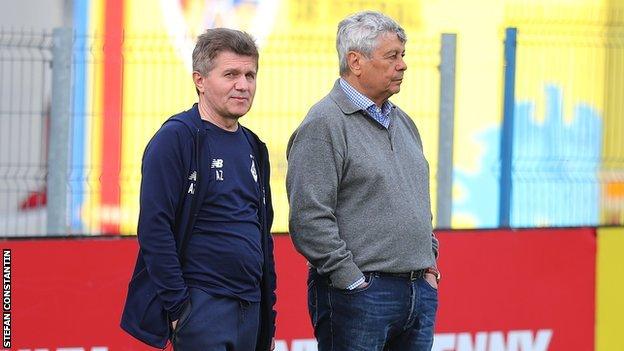 Lucescu (right) has won nine Ukrainian top-flight titles, eight with Shakhtar Donetsk and one with Dynamo Kyiv
Lucescu (right) has won nine Ukrainian top-flight titles, eight with Shakhtar Donetsk and one with Dynamo KyivDynamo will then travel to Istanbul to play Galatasaray, only to return to Bucharest for a week to meet the local side FCSB. Also in April, they will fly to play Borussia Dortmund and Dinamo Zagreb.
Lucescu was impressed by a show of support from Pep Guardiola and Dynamo hope to meet his Manchester City side in May. Real Madrid manager Carlo Ancelotti and Paris St-Germain president Nasser Al-Khelaifi and sporting director Leonardo have also shown solidarity with Dynamo's struggle.
"We not only want to play Manchester City, we're open to invitations from more clubs in England, as it's been one of the countries that condemned the war fiercely," said Lucescu. "We spoke to Pep and we thank him for his willingness to play a match, but we'll have to see based on City's schedule.
"This is not about football, football is just our vehicle. An invitation to play is a sign for those who are in Ukraine, for those fighting or suffering, for those who need to hide because of the shelling. It's not just a game. If you attend, you show that you care about what's happening.
"My dream was to play in all the countries that showed support to the Ukrainian people during these times. We must not forget. We must not go back to our daily routine and forget about Ukraine. These games come to honour the victims and to give hope and comfort to all in Ukraine."

 2 years ago
22
2 years ago
22
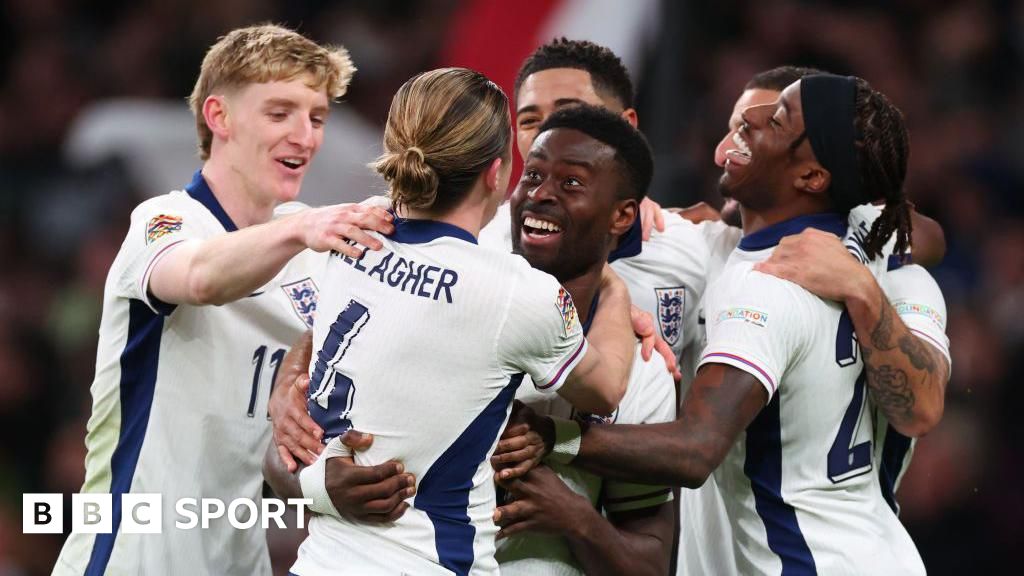
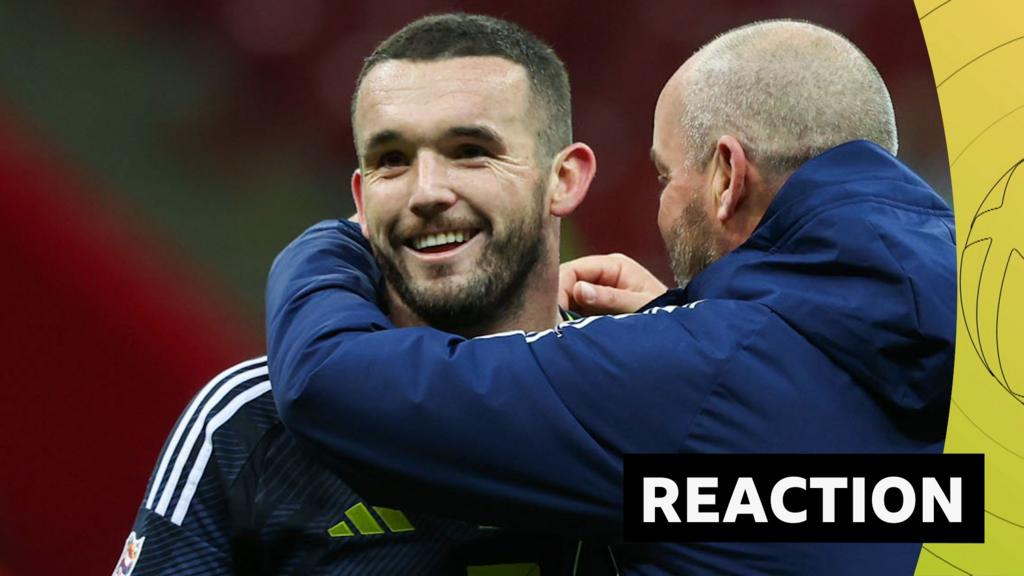
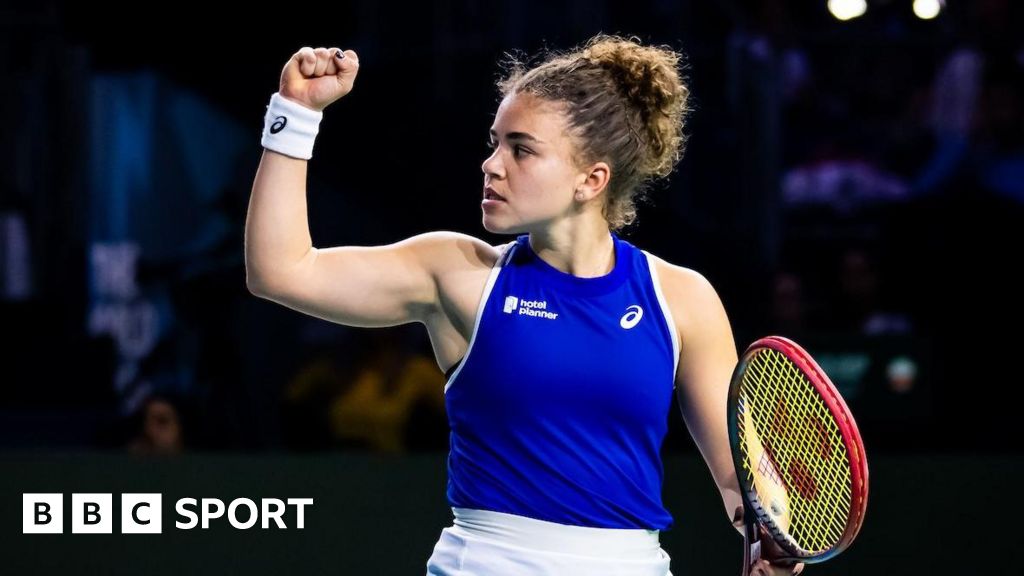





 English (US)
English (US)